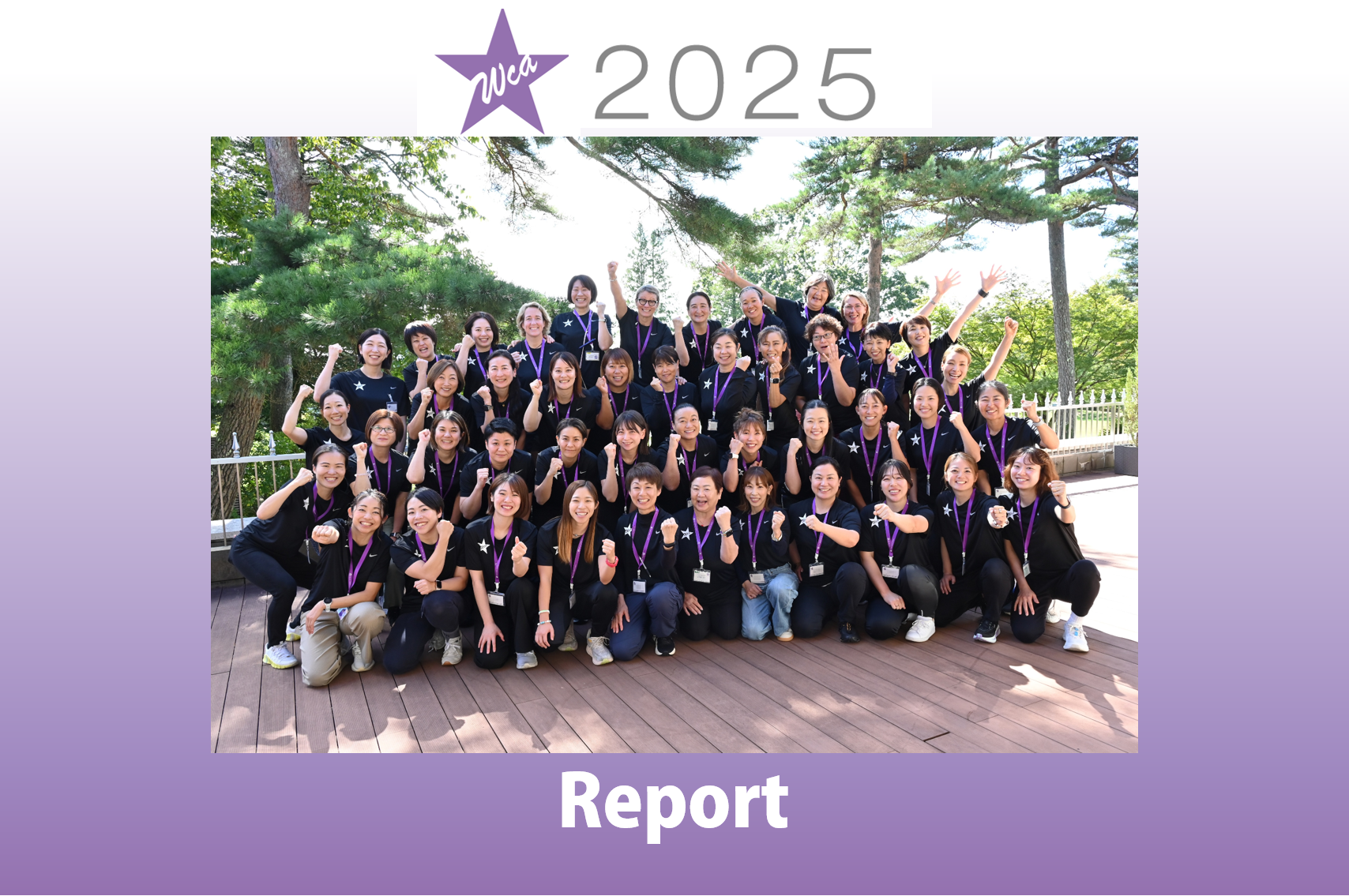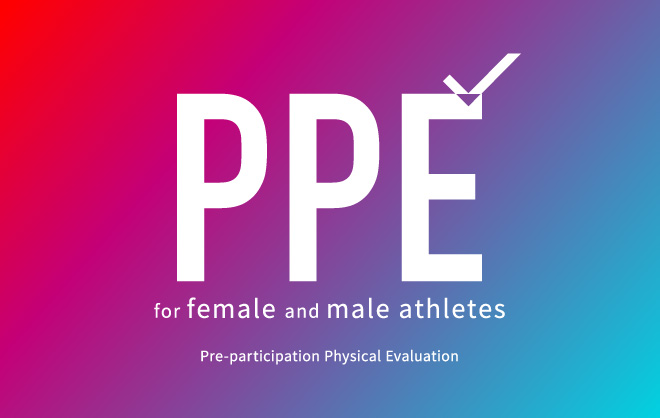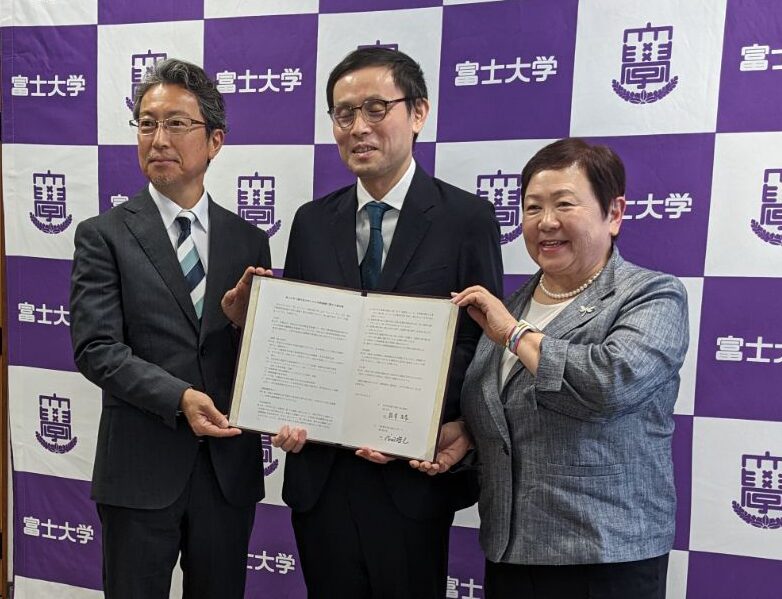
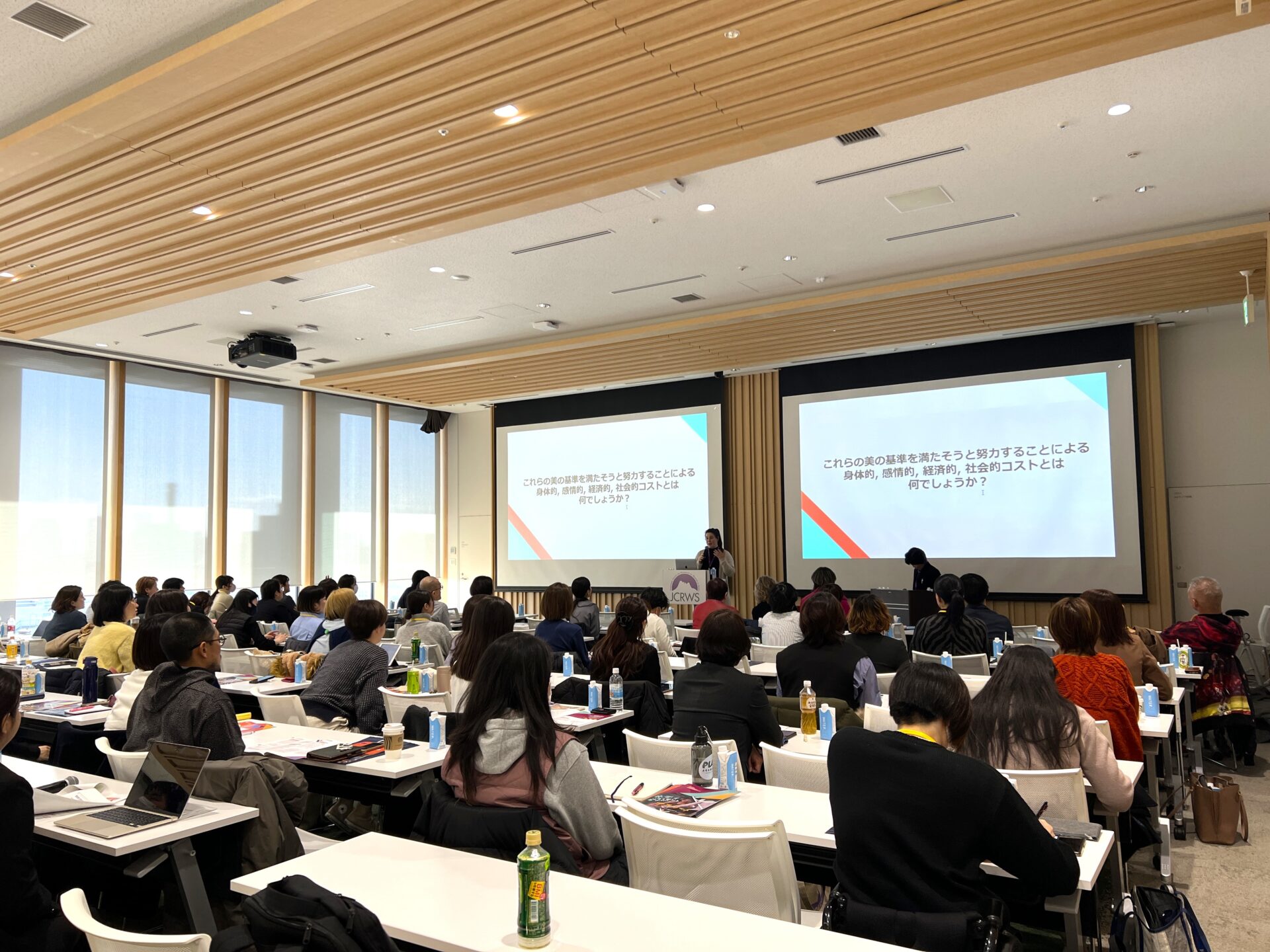
Hosting a World-First Event in Japan!
On Tuesday, February 11, at 1:30 p.m., the “Girls Body Image Support Seminar in Sport” was held at the “Ariyama Noboru Memorial Hall” on Juntendo University’s Hongo-Ochanomizu Campus.
“Body Confident Sport” (BCS) is a global initiative aimed at preventing girls from dropping out of sport due to concerns about body image. This seminar marked the first research-based BCS event of its kind held anywhere in the world*.
During the seminar, two lectures were delivered by leading international experts who have been at the forefront of the BCS initiative since its early research stages. Following the lectures, a group workshop was conducted in which Japanese researchers explained the use of BCS coaching tools, developed based on scientific evidence.
*This was a world-first in that all participants had completed the BCS educational program in advance and participated in both pre- and post-program surveys.【 Body Confident Sport program 】
Despite the powerful positive impact sport can have on girls’ lives, 45% of teenage girls around the world quit playing sport. This figure is twice as high as that of boys. One major reason for this is low body confidence. Body confidence refers to having “confidence in one’s own body”, which means being proud of one’s physical appearance and, ultimately, of oneself.
Dove, the world’s largest organization providing education to build self-esteem and body confidence, has partnered with Nike, a company widely supported by athletes and the global sport community, had launch the “Body Confident Sport Program” to help millions of girls build confidence and feel a sense of belonging in the world of sport.
BCS is the world’s first scientifically proven coaching tool designed to foster body confidence in girls aged 11 to 17. Co-developed by Dove and Nike in collaboration with the “Centre for Appearance Research” and the “Tucker Center for Research on Girls & Women in Sport”, the program incorporates insights from both coaches and girls across six countries of France, India, Japan, Mexico, the United Kingdom, and the United States. It provides coaches with essential educational resources to help improve girls’ body confidence, body image, and self-esteem through sport.
For Girls Can Enjoy and Continue Sport
Despite the seminar’s unique participation format—requiring attendees to complete pre-seminar assignments—approximately 60 people took part, reflecting a high level of interest in the topic. The seminar was held with the aim of creating a safe and inclusive environment where girls and young people of all gender identities can participate in sport with confidence and a sense of belonging.
Leaders, coaches, support staff, educators, and parents involved in girls’ athletics gathered for the event, engaging in active discussions and a lively Q&A session.
The seminar began with opening address by Dr. Natsue Koikawa, Deputy Director of the Japanese Center for Research on Women in Sport, who shared the background and purpose behind organizing the seminar.
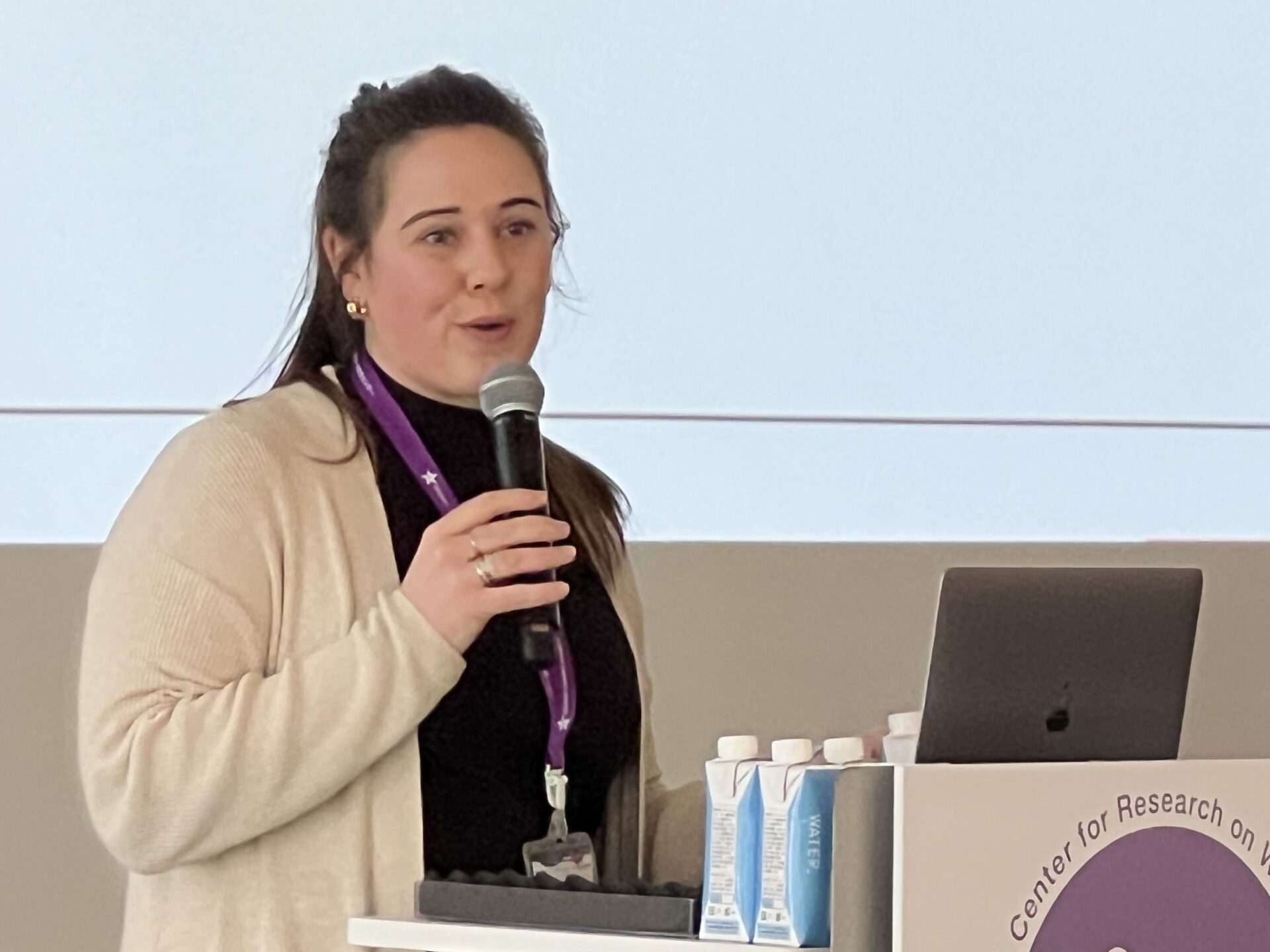
Clinical & Project Specialist /
Associate Consultant, Everybody Consulting
Lecture 1:
Psychological impact of body image
Dr. Emily, a Clinical and Project Specialist and Associate Consultant at “Everybody Consulting”, a globally recognized consulting group specializing in appearance diversity and mental health, began by explaining the definition of “body image”.
She then shared her experience leading the development team for the ”Global Body Confident Program for Girls in Sport”, a global body image project in the field of sport. Drawing from this work, she discussed key concerns surrounding body image in sport and how we can better support girls in navigating these challenges.
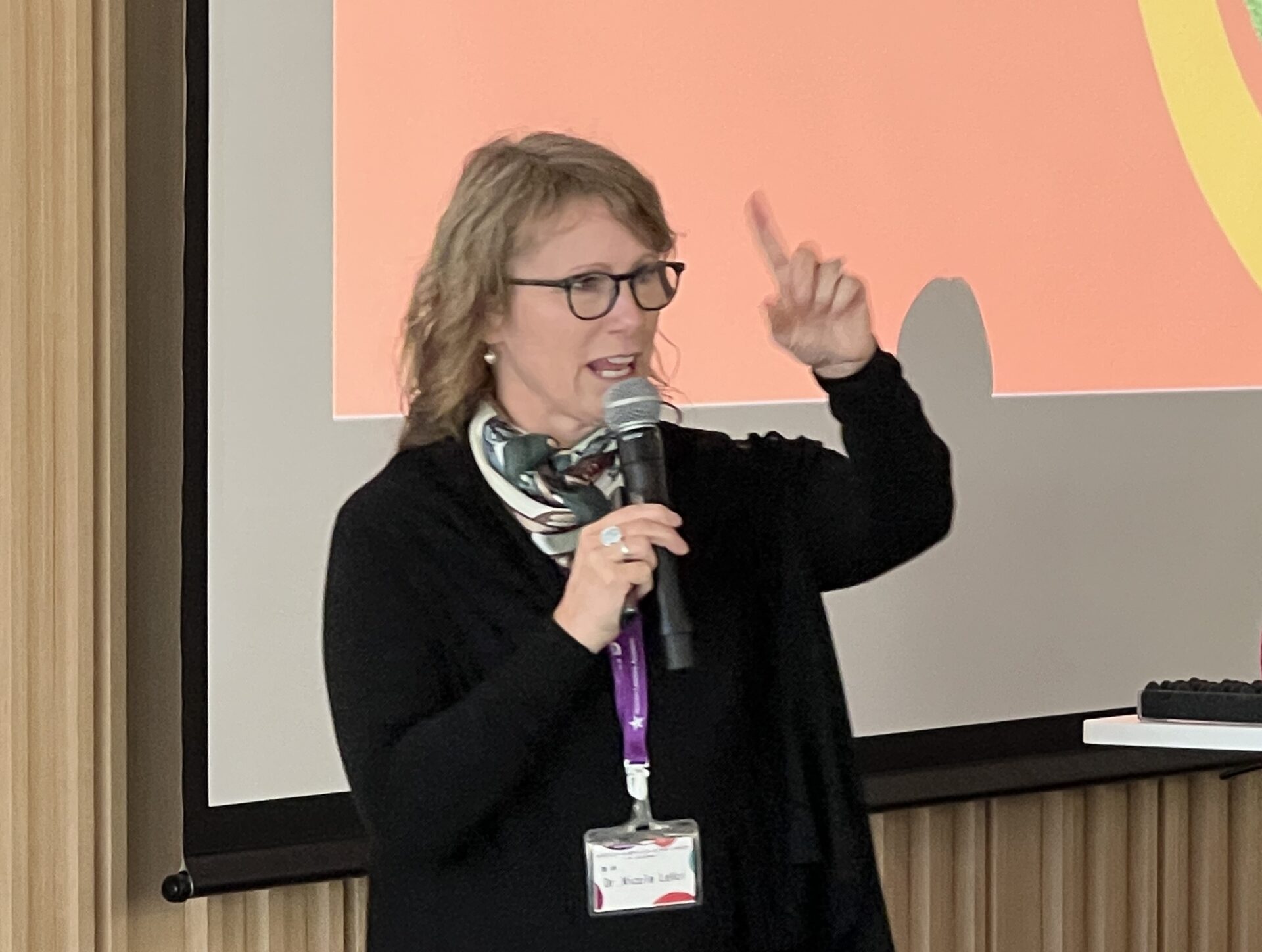
Senior Lecturer in the area of social and behavioral sciences in the School of Kinesiology at the University of Minnesota / Director, Tucker Center
Lecture 2:
What can coach do?
Dr. Nicole LaVoy, who lectures on coaching both at the Women Leaders Academy (WCA) organized by our center and at the NCAA’s WCA in the United States, provided valuable insights on how to deal with the current issues as coaches.
As a co-creator of the “BCS” program and a professional tennis coach with years of experience in the field, her words resonated deeply with the participants.
Furthermore, during a demonstration aimed at raising awareness about “body talk”, discussions surrounding appearance, Dr. Emily also joined to practice ways of addressing negative body talk. The session encouraged a shift in mindset, urging participants to “focus not on how their bodies look, but on what they can do with them”.
During the Q&A session, many questions were raised regarding concerns and uncertainties about whether body talk had been inadvertently used in coaching, as well as how to address body talk in various situations encountered on the ground. Both lecturers provided accurate and practical advice in response to these challenges.
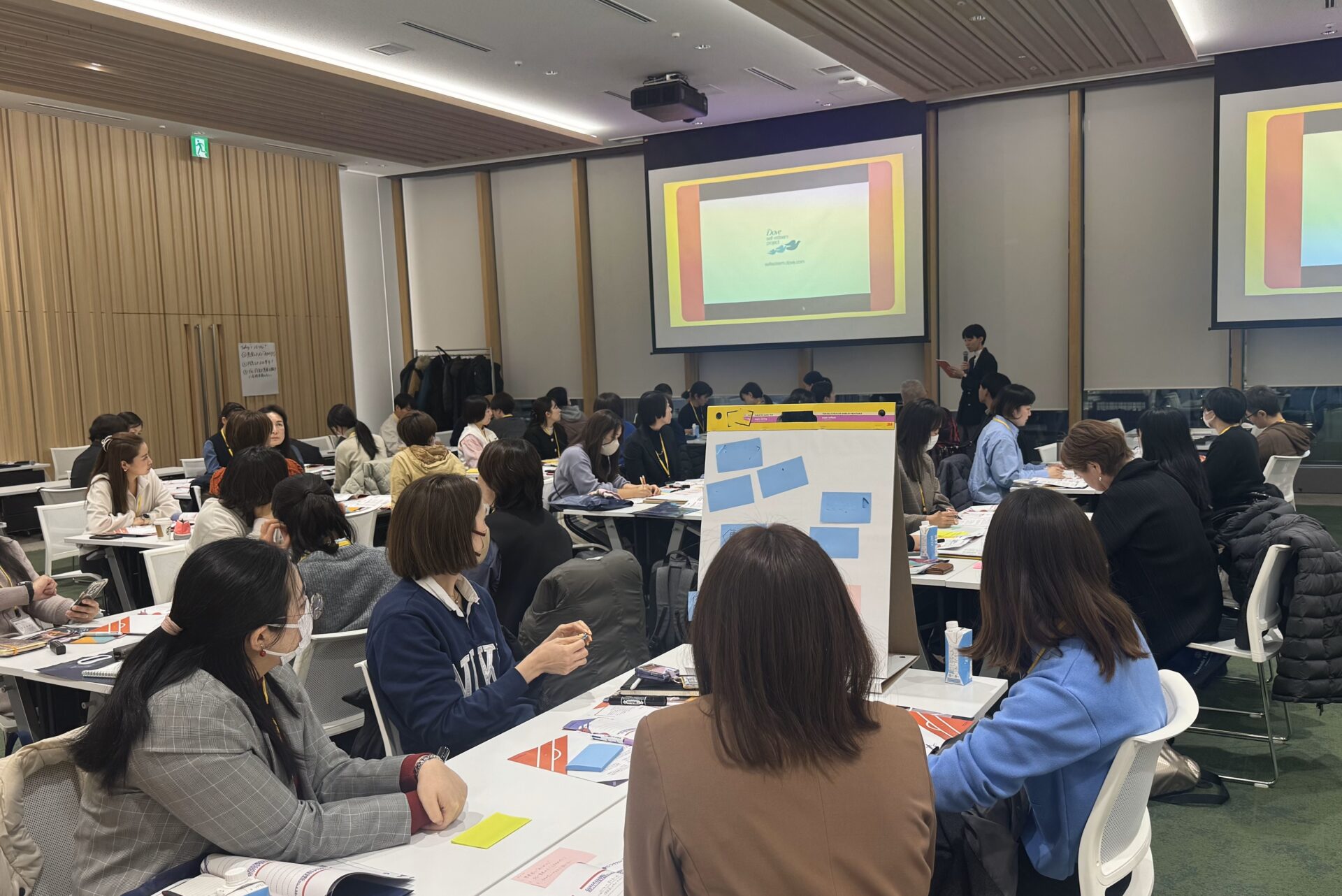
To better understand and practice the “BCS”
The group work session titled “Practical Application of BCS” began with Dr. Akane Mikura, who explained that, as a premise of the BCS program, all adults involved in guiding athletes, both on and off the field, are defined as “coaches.” In other words, everyone attending the seminar is considered a coach.
She emphasized the importance of every coach’s role in enhancing girls’ body confidence and encouraged participants to keep this in mind as they moved on to the group work session.
The “BCS” program consists of “Body Confident Coaching” for coaches and “Body Confident Athlete” for athletes, and in this group work session, participants had the opportunity to experience the program from the perspective of an athlete, and its goal was to help them understand how to practically apply “BCS” as coaches in real sport settings. During the group work, participants engaged in discussions and role-playing activities, allowing them to actively experience and internalize the practical application of BCS.
Finally, Dr. Mikura shared a message with the participants, “emphasizing the importance of listening to the “voice” of the body, not only for athletes but also for coaches, and to communicate to athletes the harmful effects of body talk”, and concluded the session.
At the closing address, Dr. Etsuko Ogasawara, the executive director, expressed gratitude to the participants, noting that this seminar was not only the first of its kind in Japan but also the first “BCS” event globally. She emphasized, “This is just the beginning. I hope you will share what you have honestly felt with those around you”. With these encouraging words, the seminar concluded successfully.







